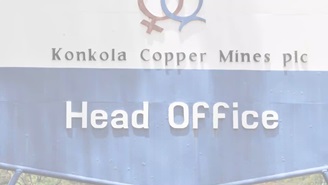ESG Ratings: A Rebuttal of Prevailing Criticisms
“No offence, but…”. This has become a common introduction to questions directed at environment, social and governance (ESG) rating providers and reflects a body of criticism centered on the premise that ESG research and ratings are fundamentally flawed.
Controversial Weapons: Regulatory Landscape and Best Practices
Since the beginning of modern warfare in the 20th century, we have witnessed the development of weapon types that have a severe, disproportionate and indiscriminate impact on civilians, even years after a conflict has ended. Over the past decades, several protest movements have attempted to halt and ban the production of specific, controversial weapon types, and many countries have adopted international conventions to this effect. More recently, some financial institutions have begun to restrict or exclude financing of companies with involvement in certain weapons. This article explores what investors can do, beyond existing legal frameworks, with respect to controversial weapons.
Point of Sale Financing: Inclusive for all?
What is Point of Sale Financing? Point of sale financing (PSF) is a relatively new financial product that has garnered significant interest from consumers, retailers and financial institutions. It provides financing to markets that were previously underserviced by conventional financial products but can also be a gateway to impulsive spending and poor financial choices if not managed properly. This article provides a brief overview of PSF, the pros and cons for consumers, a comparison of PSF with conventional lending vehicles and a sector review looking at policies addressing financial inclusion.
Can Italian Banks Avoid Another Financial Crisis?
Italy is the birthplace of the accounting and credit systems and is home to some of the world’s oldest banks. Despite this legacy, poor lending decisions in the past decade and a high number of non-performing loans (NPLs) is putting the Italian banking sector at risk. This article will explore the connection between responsible product marketing practices and the financial stability of Italian banks by analyzing Sustainalytics’ ESG data.
Passive ESG Investing: Q4 2018 Sample Portfolio Analysis
The global equities market experienced substantial growth over the first quarter of 2019 as the FTSE All-World (AW) index returned 12.5%. But this growth spurt comes on the tail of a significant selloff during the preceding quarter; the total return of the FTSE AW over Q4 2018 sunk to -12.6%.[i]
How will ESG investing fare in a volatile or bear market?
Much has been written about the rise of responsible investing and environment, social and governance (ESG) integration over the past decade. From 2014 to 2016, assets that systematically considered ESG factors in the investment process grew from USD 7.5 trillion to USD 10.4 trillion, with continued momentum over the past several years[i]. However, recent commitments to ESG integration (vs. values-based strategies) have yet to be tested by a significant market downturn. The spike in market volatility experienced in late 2018 has led some to question whether the consideration of ESG factors by investors will continue to flourish in a market environment characterized by investor fear and valuation corrections.
Huawei and Beyond: Increasing Scrutiny of China’s Technology Sector
In December 2018, Canadian authorities arrested Meng Wanzhou, based on a U.S. extradition request. Ms. Wanzhou is the CFO of Huawei, the world’s largest telecom equipment provider and third largest mobile phone manufacturer. In January 2019, the U.S. Department of Justice (DOJ) charged Huawei and Meng with 23 counts of fraud related to alleged breaches of U.S. sanctions and trade secret theft.
Slavery in the Seafood Industry
On January 30, 2019[i], Thailand became the first Asian country to ratify the International Labor Organization’s (ILO) Working in Fishing Convention (C188). This comes after years of criticism over illegal, unreported and unregulated fishing (IUU) and findings of slavery and human trafficking within its fishing industry.
The Democratic Republic of the Congo – Presidential elections and mining, what’s next?
Updated March 4th, 2019 On the December 30th 2018, presidential elections finally took place in the Democratic Republic of the Congo (DRC), the first “democratic” elections in the country’s history. A peaceful transition of power in the region is of particular significance to the mining and renewable energy sectors. The DRC produced an estimated 58 per cent of the world’s cobalt in 2018, an essential element in battery technology. Any political instability or collapse into violence after the elections could restrict cobalt supply and potentially drive up the cost of batteries.
The Royal Commission Report: a new path for the Australian finance industry?
On Monday 4 February, the final report from the Royal Commission inquiry into misconduct in the Australian financial sector was published. It contained a scathing review of years of misconduct and of the failures by regulators to appropriately supervise and hold companies accountable. The report also provided 76 recommendations to fix these issues.
Companies Invest to Extend their Life of Mines
In December 2018, an investor trip was organised to see the operations of Vedanta’s Konkola Copper Mines (KCM) and Glencore’s Mopani Copper Mines (MCM) located in the Copperbelt of Zambia. We’ve been engaging with Vedanta and Glencore for several years as the companies have experienced several ESG issues in their histories. As part of our engagement process, we conduct in-person visits to gain a better understanding of what’s happening on the ground. During this trip we saw how investment can extend the life of mines and continue to support the local communities. In this article I’ll discuss the importance of stakeholder and government relations as these companies make major investments to improve and extend their operations in the country.
The True Cost of Tomatoes: Insights from our Supply Chain Engagement Trip
In late 2019, Sustainalytics traveled to Italy as part of our Stewardship and Risk Food Supply Chain Engagement. We embarked on this trip with a group of investors and Nestlé to gain an understanding of the working conditions in the tomato sector. The goal of this engagement program is to address risks of child labor in the targeted companies’ supply chains as well as remediate potential adverse labor rights impacts.
Value-Based healthcare: are companies embracing the change?
National healthcare budgets are steadily growing worldwide. Increasing budget pressure, ageing populations and the rise of chronic diseases[i] are pushing both developed and developing markets to look for more effective healthcare delivery methods. In the United States, where national health expenditures peaked at USD 3.5 trillion in 2017, the Centers for Medicaid and Medicare Services (CMS) projected the healthcare budget will increase at an average annual rate of 5.5% in the next decade.[ii] [iii] In the United Kingdom, around 70% of healthcare spending goes to the treatment of chronic conditions.[iv] As governments and healthcare providers examine ways to contain healthcare costs without sacrificing quality of the service, value-based healthcare (VBHC) has emerged as a potential solution to create a more affordable, efficient and inclusive healthcare system.
Implications of Consolidation in the Pharma and Biotech Sector
Increasing consolidation within the pharma and biotech industry has triggered questions about the ultimate impact on the industry, as well as on its stakeholders. With increased competition from generic manufacturers and rising drug development costs, several pharmaceutical companies have engaged in M&A as a defensive strategy to offset losses in market share and gain cost savings. While M&As are typically scrutinized by authorities for harming competition, another question has emerged: does consolidation harm innovation and ultimately the industry’s capacity to develop lifesaving drugs?
Cyber Security and Data Privacy: The Downsides of the Network Effect
As investors assess their portfolios and develop engagement approaches, considering data privacy and security risks alongside traditional fundamental factors may be necessary to develop a fuller understanding of the risks facing a company’s enterprise value. In many cases, these risks may fly under the radar until there is a systemic failure, at which point it may already be too late to effectively mitigate the fallout.
A hope for stability in South Africa
During GES’ recent Emerging Markets Engagement trip to South Africa, we held several meetings with mining companies and, for the first time, with the South African government’s Department of Mineral Resources (DMR) and the Minerals Council South Africa, the mining industry’s trade body.
Social Media Regulation: Latest developments and future trends
The internet’s burning issues have taken center stage, as regulators globally push for a crackdown on social media. In the wake of the 2016 US presidential election, tech companies such as Facebook, Twitter, and Google were criticized for having allegedly permitted the propagation of so-called “fake news” on their platforms.
How Prepared are Australian Companies for the Modern Slavery Act?
Australia is being scrutinized for lagging on climate action and for a string of scandals in its financial sector, but the country will soon be a leader in fighting human rights abuses and modern slavery practices, as it is set to become one of few countries in the world to adopt a historic Modern Slavery Act (MSA).



















